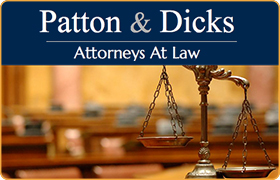Highland City Criminal Lawyer, Florida, page 2
Sponsored Law Firm
-
 x
x

Click For More Info:
-
Patton & Dicks
465 East Main Street Bartow, FL 33830» view mapCriminal Defense, Criminal Appeals Real Attorneys Fighting For Real People
As Criminal and DUI Attorneys, we defend peoples rights in criminal courts. Find out how our services can help your situation.
863-225-3550
Brenda Ramirez Crocker
Federal Appellate Practice, Family Law, Criminal, Personal Injury
Status: In Good Standing Licensed: 14 Years
John Lee Martinez
Landlord-Tenant, Divorce, Divorce & Family Law, Criminal
Status: In Good Standing Licensed: 35 Years
Mario J. Cabrera
Criminal, Family Law, Litigation, Mediation, Personal Injury
Status: In Good Standing Licensed: 31 Years

 About MeMore Info
About MeMore Info PracticesPatton & Dicks
PracticesPatton & Dicks
